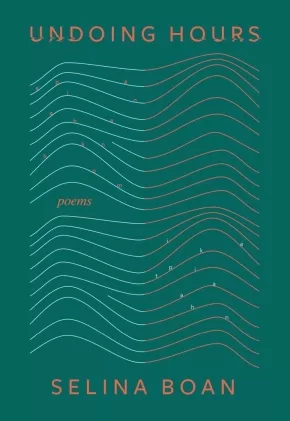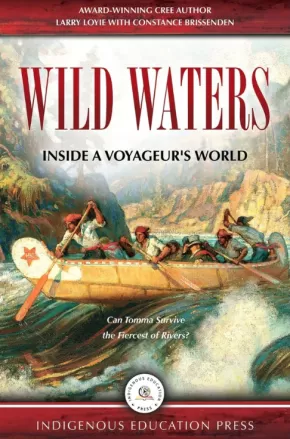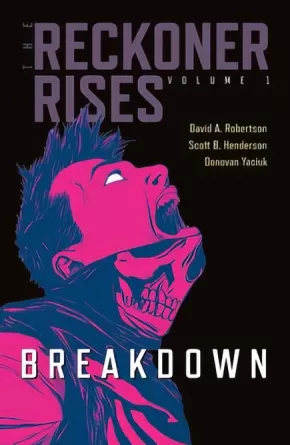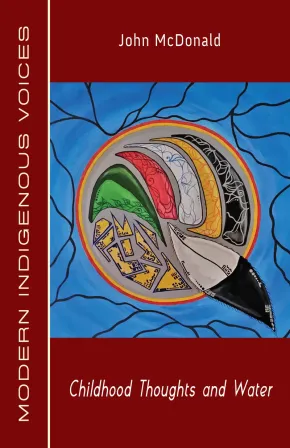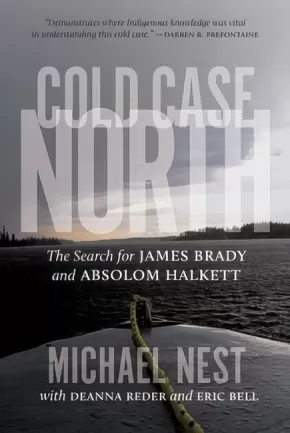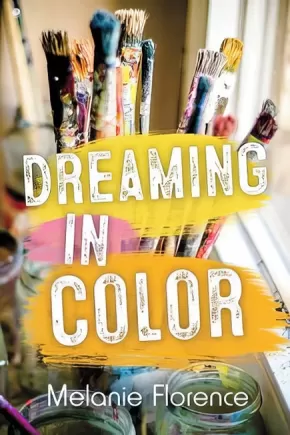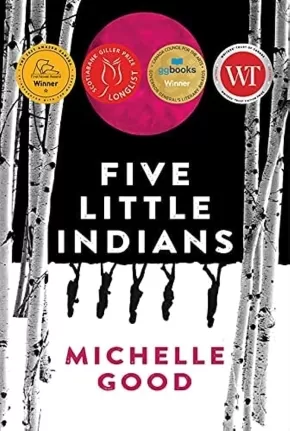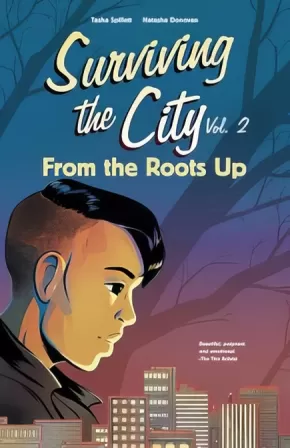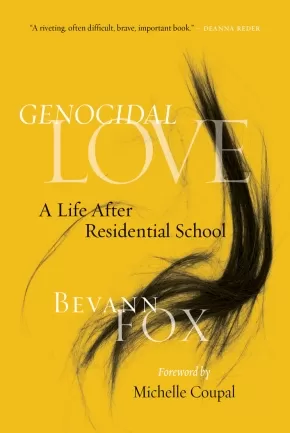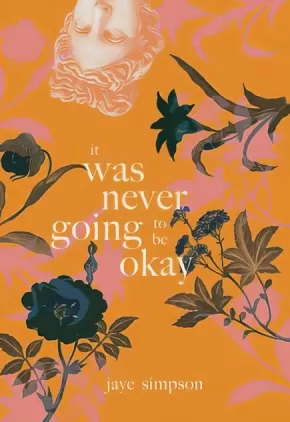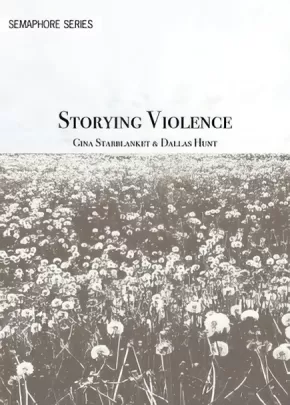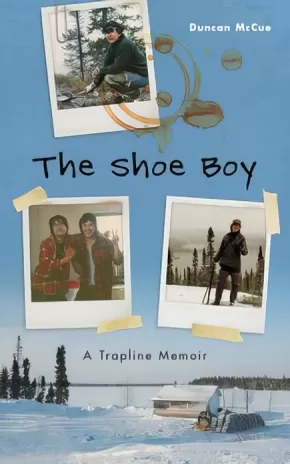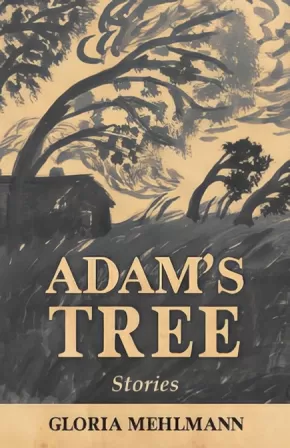
Cree (Nehiyawak)
106
-
120
of
169 Results;
Sort By
Go To
of 12
Undoing Hours
$18.95
Format:
Paperback
Text Content Territories:
Indigenous Canadian; First Nations; Cree (Nehiyawak);
ISBN / Barcode: 9780889713963
Synopsis:
Synopsis:
Selina Boan’s debut poetry collection, Undoing Hours, considers the various ways we undo, inherit, reclaim and (re)learn. Boan’s poems emphasize sound and breath. They tell stories of meeting family, of experiencing love and heartbreak, and of learning new ways to express and understand the world around her through nêhiyawêwin.
As a settler and urban nehiyaw who grew up disconnected from her father’s family and community, Boan turns to language as one way to challenge the impact of assimilation policies and colonization on her own being and the landscapes she inhabits. Exploring the nexus of language and power, the effects of which are both far-reaching and deeply intimate, these poems consider the ways language impacts the way we view and construct the world around us. Boan also explores what it means to be a white settler–nehiyaw woman actively building community and working to ground herself through language and relationships. Boan writes from a place of linguistic tension, tenderness and care, creating space to ask questions and to imagine intimate decolonial futures.
Awards
- 2022 Indigenous Voices Award for published poetry in English.
Reviews
"Reading Undoing Hours feels like going home, where home, much like memory, is a place continually under construction. This is a work at once exquisite and particular in its offering while at the same time striking us as expansive, prepossessing and true." — Liz Howard
"Selina Boan’s Undoing Hours is going to be so very important to those who are “learning to name” inside multiple languages. It is about embodying the knowledge of one’s ancestry as well as about love as it collides with grief and longing and hope. It is about standing firmly inside a single hour and being brave enough to want another. It is about learning Cree, about how a word in a language older than the world might, in the end, redeem us. And because of this, it is also about miracles. I can’t wait to read it again and again and again." — Billy-Ray Belcourt
Additional Information
96 pages | 5.50" x 8.00"
Wild Waters, Inside a Voyageur's World
$19.99
Format:
Paperback
Text Content Territories:
Indigenous Canadian; First Nations; Haudenosaunee (Iroquois);
ISBN / Barcode: 9780993937187
Synopsis:
Synopsis:
Wild Waters is Larry Loyie’s, Cree, exploration of the little-known side of the fur trade, the side of Haudenosaunee (Iroquois) and Canadien (French Canadian) paddlers who powered the canoes. After seeing his four times great-grandfather’s name, Tomma, in Chief Trader Archibald McDonald’s 1828 journal, Larry, with partner and co-author Constance Brissenden, began researching and writing about a challenging canoe voyage from Montreal to Hudson Bay, and then on to the Pacific. Larry was determined to combine his creative vision of Tomma’s life with the entries in McDonald’s journal to honour the unacknowledged voices of history. Some of the people in Wild Waters existed; others are based on the authors’ view of the fur trade and its people. Wherever possible, real dialogue was used. Weights and measures are consistent with usage of the era.
Reviews
“Wild Waters, Inside a Voyageur's World is an authentic, atmospheric tale of the voyageur and Hudson’s Bay Company days. Not only do you admire the strength and courage of the paddlers in navigating the wild waters, but also how they negotiated the intense personalities and rivalries of the Europeans they laboured for. An excellent historical account of the voyageur’s life!” -- Darlene Adams, Curator, High Prairie & District Museum, High Prairie, AB.
Educator Information
The publisher recommends this novel for grades 6 to 12 and for Adult Education.
Additional Information
152 Pages | Paperback
Breakdown
$21.95
Artists:
Format:
Paperback
Text Content Territories:
Indigenous Canadian;
ISBN / Barcode: 9781553798903
Synopsis:
Synopsis:
Acclaimed writer, David A. Robertson, delivers suspense, adventure, and humour in this stunningly illustrated graphic novel continuation of The Reckoner trilogy.
After the events in Wounded Sky, Cole and Eva arrive in Winnipeg, the headquarters of Mihko Laboratories. They are intent on destroying the company once and for all, but their plans are thwarted when a new threat surfaces. When Cole becomes mired in terrifying visions, Eva must harness her newly discovered powers to investigate Mihko without him. Are Cole’s visions just troubled dreams or are they leading him to a horrible truth?
Perfect for fans of superheroes, The Bloodhound Gang returns in this all-new graphic novel series, The Reckoner Rises.
Reviews
“David A. Robertson's powerful Indigenous YA trilogy gets a comic-book continuation, a natural format for the adventures of an anxious teen turned tormented superhero.” - Quill & Quire
Educator & Series Information
Recommended for grades 8 to 12.
This book is part of the graphic novel series, The Reckoner Rises, a continuation of The Reckoner trilogy.
Additional Information
72 pages | 6.50" x 10.00"
Buck Naked Kitchen: Radiant and Nourishing Recipes to Fuel Your Health Journey
$35.00
Format:
Hardcover
Text Content Territories:
Indigenous Canadian; First Nations; Cree (Nehiyawak);
Reading Level: N/A
ISBN / Barcode: 9780735236813
Synopsis:
Synopsis:
Beautiful and delicious gluten-free, grain-free, and dairy-free recipes, fully endorsed by Whole30.
As millions of people know, one of the toughest things about completing the Whole30 is figuring out what to eat the other 335 days of the year. Kirsten Buck, creator of Buck Naked Kitchen, struggled with her weight and chronic eczema for years before she transformed her life through food. She adopted a mostly paleo way of eating--gluten-free, grain-free, dairy-free, healthy fats, no refined sugars--and experienced dramatic weight loss. Soon after she went on to win the first-ever "Next Whole30 Star" competition and is now a certified holistic nutritionist, sharing delicious and beautiful recipes on her blog and Instagram with thousands of fans. From her Pesto Chicken Salad Sandwich for lunch, to Moroccan Lamb Stew for dinner, to the stunning Summer Berry Galette to satisfy your sweet tooth, there is something for every taste. In addition, there are recipe basics for making your own mayo, yogurt, salad dressings, tahini, and more, which prove that healthy eating doesn't have to break the bank.
Reviews
“[Buck Naked Kitchen] combines Kirsten’s education as a certified holistic nutritionist with her background and experience focusing on whole foods and creating healthy, approachable and delicious meals. Not only is every recipe gluten, grain AND dairy-free, did I also mention the Manitoba favourite: chicken tenders and HONEY DILL?! You gotta try it!”—Travel Manitoba
What I see in this book is a woman showing up as her truest, most authentic self, using food to speak to us, to connect with us, and to show us and herself love. Kirsten has brought her journey into the light, and the joy, vibrancy, and newfound confidence with which she both cooks and moves through this world glows through these pages.”—from the Foreword by Melissa Urban, Whole30 Co-Founder and CEO
“There are so many classic recipe staples in Kirsten's cookbook that it deserves a permanent place on every kitchen counter! I felt like she invited me into her home and showed me how to cook nourishing food from scratch. The photography is beautiful and Kirsten's approach to food is so effortless and natural.”—Joy McCarthy, bestselling author of Joyous Health and The Joyous Cookbook
Additional Information
272 pages | 8.25" x 9.31" | Full-colour photos throughout | Hardcover
Childhood Thoughts and Water
$16.95
Format:
Paperback
Text Content Territories:
Indigenous Canadian; First Nations; Cree (Nehiyawak); Plains Cree; Muskeg Lake Cree Nation; Métis;
Grade Levels: 12; University/College;
ISBN / Barcode: 9781772311198
Synopsis:
Synopsis:
Childhood Thoughts and Water is a collection of Beat Poetry, Spoken Word, Performance Art and Lyrical Verse. This is a work which journeys into the memories and events of an Urban Indigenous warrior's struggles to reconnect with a language and culture that is seemingly always almost out of reach. The common theme of reconnecting with nature and with water is interspersed with the imagery of childhood recollections and anecdotes about life and love, aspirations and defeats, and the desire to achieve greatness in spite of the obstacles and barriers inherent in a life lived on the fringes, in the shadows and on the streets, in the spotlight and behind the backstage curtain.
Educator & Series Information
This book is part of the Modern Indigenous Voices series.
Additional Information
80 pages | 5.50" x 8.50" | Paperback
Cold Case North: The Search for James Brady and Absolom Halkett
$24.95
Format:
Paperback
Text Content Territories:
Indigenous Canadian; First Nations; Cree (Nehiyawak); Métis;
Grade Levels: 12; University/College;
ISBN / Barcode: 9780889777491
Synopsis:
Synopsis:
For fans of true crime, an unsolved mystery of missing persons, police conspiracies, and private investigations in an Indigenous community in northern Canada.
Métis leader James Brady was one of the most famous Indigenous activists in Canada. A communist, strategist, and bibliophile, he led Métis and First Nations to rebel against government and church oppression. Brady’s success made politicians and clergy fear him, and he had enemies everywhere.
In 1967, while prospecting in Saskatchewan with Cree Band Councillor and fellow activist Absolom Halkett, both men vanished without a trace from their remote lakeside camp. For 50 years rumours swirled of secret mining interests, political intrigue, assassination, and murder. Cold Case North is the story of how a small team, with the help of a local Indigenous community, exposed police failure in the original investigation, discovered new clues and testimony, and gathered the pieces of the North’s most enduring missing persons puzzle.
Reviews
“This engrossing account charts the efforts of three dedicated people to determine the fate of two missing Indigenous men in the north of Canada. [...] Meticulously researched, this smoothly written tale of injustice showcases the authors’ tenacity and arouses the reader’s indignation. This is a scathing rebuke of the RCMP’s failure to take the case of missing Indigenous people seriously.” —Publisher's Weekly
“Like too many cases involving missing and murdered Indigenous people, authorities failed to ensure that Brady and Halkett’s deaths were properly investigated. This book helps get to the bottom of the fate of these two men, and demonstrates why investigators should never dismiss the knowledge of Indigenous peoples.” —Darren Prefontaine, author of Gabriel Dumont
“Cold Case North is part true crime thriller, part gripping mystery about the disappearance of Métis legend James Brady and Absolom Halkett in northern Saskatchewan. It is also about Indigenous knowledge, investigative incompetence, and the stuff of legend.” —Paul Seesequasis, author of Blanket Toss Under Midnight Sun
“A fascinating search for the truth, Cold Case North unravels the layers of a decades’ old mystery. It is about how communities hold knowledge for generations, and how missing loved ones are never forgotten.” —Katherena Vermette, author of River Woman and The Break
Additional Information
272 pages | 5.00" x 7.00"
Dreaming in Color
$10.95
Format:
Paperback
Text Content Territories:
Indigenous Canadian;
ISBN / Barcode: 9781459825864
Synopsis:
Synopsis:
Jennifer McCaffrey has been working hard on her art for years and is thrilled when she is accepted to a prestigious art school. The school is everything she always thought it would be, mostly. There is one group of kids who seem to resent her and say she only got in because of her skin color. Jen, who loves to create new pieces of artwork that incorporate her Indigenous heritage, finds herself a target when the group tells her to stop being “so Indian”. The night before the big art show at school, Jen’s beading art project is defaced. Jen has to find a way not to let the haters win.
Reviews
“Offers a mirror to the sometimes painful emotions and everyday experiences of Indigenous teens of mixed heritage. A rare and welcome reluctant reader title featuring an Indigenous protagonist.” — Kirkus Reviews
“Through the novel’s accessible language and short chapters, readers of all levels and backgrounds will be able to relate to and learn from Jen’s overcoming racial prejudice and intolerance. Readers will also gain a sense of empathy as they come to understand the struggles faced by Indigenous youth in contemporary society. Highly Recommended.” — CM: Canadian Review of Materials
Educator & Series Information
Recommended for ages 12+
Fry Reading Level: 3.4
Themes: racism, prejudice, standing up to bullies, cultural pride, Indigenous art
Dreaming in Color is a companion novel to the bestselling He Who Dreams (the main character is John's sister).
New, enhanced features (dyslexia-friendly font, cream paper, larger trim size) to increase reading accessibility for dyslexic and other striving readers.
Recommended in the Canadian Indigenous Books for Schools 2020/2021 resource list for grades 6 to 9 for English Language Arts.
This is an Orca Soundings book. Orca Soundings are short, high-interest novels written specifically for teens. These edgy stories with compelling characters and gripping storylines are ones they will want to read.
Additional Information
144 pages | 5.00" x 7.50"
Five Little Indians
$22.99
Format:
Paperback
Text Content Territories:
Indigenous Canadian;
Reading Level: N/A
ISBN / Barcode: 9781443459181
Synopsis:
Synopsis:
Taken from their families when they are very small and sent to a remote, church-run residential school, Kenny, Lucy, Clara, Howie and Maisie are barely out of childhood when they are finally released after years of detention.
Alone and without any skills, support or families, the teens find their way to the seedy and foreign world of Downtown Eastside Vancouver, where they cling together, striving to find a place of safety and belonging in a world that doesn’t want them. The paths of the five friends cross and crisscross over the decades as they struggle to overcome, or at least forget, the trauma they endured during their years at the Mission.
Fuelled by rage and furious with God, Clara finds her way into the dangerous, highly charged world of the American Indian Movement. Maisie internalizes her pain and continually places herself in dangerous situations. Famous for his daring escapes from the school, Kenny can’t stop running and moves restlessly from job to job—through fishing grounds, orchards and logging camps—trying to outrun his memories and his addiction. Lucy finds peace in motherhood and nurtures a secret compulsive disorder as she waits for Kenny to return to the life they once hoped to share together. After almost beating one of his tormentors to death, Howie serves time in prison, then tries once again to re-enter society and begin life anew.
With compassion and insight, Five Little Indians chronicles the desperate quest of these residential school survivors to come to terms with their past and, ultimately, find a way forward.
Awards
- Amazon Canada First Novel Award
- 2020 Governor General's Literary Award for English-language fiction
- 2022 Canada Reads Winner
Educator Information
Winner of the 2018 HarperCollins/UBC Price for Best New Fiction, Michelle Good's Five Little Indians is told from alternating points of view of five former residential school students as they struggle to survive in 1960s Vancouver.
Additional Information
304 pages | 6.00" x 9.00"
From the Roots Up: Surviving the City Vol. 2
$21.95
Artists:
Format:
Paperback
Text Content Territories:
Indigenous Canadian; First Nations; Anishinaabeg; Cree (Nehiyawak);
ISBN / Barcode: 9781553798989
Synopsis:
Synopsis:
Dez and Miikwan’s stories continue in this sequel to Surviving the City.
Dez’s grandmother has passed away. Grieving, and with nowhere else to go, she’s living in a group home. On top of everything else, Dez is navigating a new relationship and coming into her identity as a Two-Spirit person.
Miikwan is crushing on the school’s new kid Riel, but doesn’t really understand what Dez is going through. Will she learn how to be a supportive ally to her best friend?
Elder Geraldine is doing her best to be supportive, but she doesn’t know how to respond when the gendered protocols she’s grown up with that are being thrown into question.
Will Dez be comfortable expressing her full identity? And will her community relearn the teachings and overcome prejudice to celebrate her for who she is?
Educator & Series Information
Recommended for ages 12 to 18.
This is the second volume in the Surviving the City graphic novel series, which is also part of the Debwe Series.
Surviving the City is a contemporary graphic novel series about young Indigenous women navigating their way in an urban environment. It includes these books:
Surviving the City
From the Roots Up
We Are the Medicine
A Teacher Guide is available: Surviving the City Teacher Guide: Exploring Identity, Allyship, and Social Action for Meaningful Change in Grades 7-12
Additional Information
64 pages | 6.50" x 10.00"
Genocidal Love: A Life after Residential School
$21.95
Text Content Territories:
Indigenous Canadian; First Nations; Cree (Nehiyawak);
Grade Levels: 12; University/College;
ISBN / Barcode: 9780889777415
Synopsis:
Synopsis:
How can we heal in the face of trauma? How can we transform intergenerational pain into a passion for community and healing?
Presenting herself as “Myrtle,” residential school survivor and Indigenous television personality Bevann Fox explores essential questions by recounting her life through fiction. She shares memories of an early childhood filled with love with her grandparents—until she is sent to residential school at the age of seven. Her horrific experiences of abuse there left her without a voice, timid and nervous, never sure, never trusting, affecting her romantic relationships and family bonds for years to come.
This is the story of Myrtle battling to recover her voice. Genocidal Love is a powerful confirmation of the long-lasting consequences of residential school violence —and a moving story of finding a path towards healing.
Awards
- 2021 Indigenous Voices Awards winner for Published Prose in English: Creative Nonfiction and Life-Writing
Reviews
“A riveting, often difficult, brave, important book. ” —Deanna Reder, Chair, Department of Indigenous Studies, Simon Fraser University
“A riveting and courageous reflection. . . . Genocidal Love is unique in its detailed account of the often re-traumatizing effects of the legal and bureaucratic barriers of compensation programs predating the Truth and Reconciliation Commission. ” —Jesse Rae Archibald-Barber, editor of kisiskâciwan and co-editor of Performing Turtle Island
“Fox tears beauty from the jaws of genocide, daring to claim love beyond settler imaginings—love that nurtures decolonial futures and makes possible a more just world. ”—Sam McKegney, author of Magic Weapons and Masculindians
Educator Information
A forward from Michelle Coupal explains more about "Genocidal Love—a story that Bevann tells about herself outside the boundaries of what constitutes fiction and non-fiction".
Additional Information
256 pages | 5.00" x 7.00"
it was never going to be okay
$18.95
Format:
Paperback
Text Content Territories:
Indigenous Canadian; First Nations; Anishinaabeg; Oji-Cree; Ojibway; Saulteaux; Cree (Nehiyawak); Swampy Cree ; Sapotaweyak Cree Nation;
Grade Levels: 12; University/College;
ISBN / Barcode: 9780889713826
Synopsis:
Synopsis:
it was never going to be okay is a collection of poetry and prose exploring the intimacies of understanding intergenerational trauma, Indigeneity and queerness, while addressing urban Indigenous diaspora and breaking down the limitations of sexual understanding as a trans woman. As a way to move from the linear timeline of healing and coming to terms with how trauma does not exist in subsequent happenings, it was never going to be okay tries to break down years of silence in simpson’s debut collection of poetry:
i am five
my sisters are saying boy
i do not know what the word means but—
i am bruised into knowing it: the blunt b,
the hollowness of the o, the blade of y
Awards
- 2021 Indigenous Voices Awards winner for Published Poetry in English.
Reviews
"jaye simpson’s it was never going to be okay is a symphony of unrelenting rage and undying hope that beckons to be heard, seen and held with the utmost care. In this stunning debut they speak truths to the complexities of the body, land and memory through an intimately structured and poignant cadence. This collection will leave you longing for more and, in the legacy of trans Indigenous literature, change lives." — Arielle Twist, author of Disintegrate/Dissociate
"jaye simpson marshals a vast economy of images because their subject matter is as large as an entire country, as the colonial past, as structures of oppression and indifference that undermine Indigenous and trans livability. At the level of craft, simpson makes use of the codes of tragedy, polemic, autobiography and the lyric artfully and powerfully. By the book’s end, buoyed by its final beautiful and tender section, a kind of love letter to trans Indigenous peoples, one is called on to build a new world. In this way, jaye simpson's poetry is a vital artifact of a decolonial future!" — Billy-Ray Belcourt, 2018 Griffin Poetry Prize winner for This Wound Is a World
Additional Information
112 pages | 5.50" x 8.00"
Storying Violence: Unravelling Colonial Narratives in the Stanley Trial
$15.00
Format:
Paperback
Text Content Territories:
Indigenous Canadian; First Nations; Cree (Nehiyawak);
Reading Level: N/A
ISBN / Barcode: 9781927886373
Synopsis:
Synopsis:
In August of 2016, Cree youth Colten Boushie was shot dead by Saskatchewan farmer Gerald Stanley. Using colonial and socio-political narratives that underlie white rural settler life, the authors position the death of Boushie and trial of Stanley in relation to Indigenous histories and experiences in Saskatchewan. They point to the Stanley case as just one instance of Indigenous peoples' presence being seen as a threat to settler-colonial security, then used to sanction the exclusion, violent treatment, and death of Indigenous peoples and communities.
Additional Information
120 pages | 5.00" x 7.00"
The Barren Grounds (PB)
$12.99
Format:
Paperback
Text Content Territories:
Indigenous Canadian; First Nations; Cree (Nehiyawak); Swampy Cree ;
ISBN / Barcode: 9780735266124
Synopsis:
Synopsis:
Narnia meets traditional Indigenous stories of the sky and constellations in an epic middle-grade fantasy series from award-winning author David Robertson.
Morgan and Eli, two Indigenous children forced away from their families and communities, are brought together in a foster home in Winnipeg, Manitoba. They each feel disconnected, from their culture and each other, and struggle to fit in at school and at their new home -- until they find a secret place, walled off in an unfinished attic bedroom. A portal opens to another reality, Askí, bringing them onto frozen, barren grounds, where they meet Ochek (Fisher). The only hunter supporting his starving community, Misewa, Ochek welcomes the human children, teaching them traditional ways to survive. But as the need for food becomes desperate, they embark on a dangerous mission. Accompanied by Arik, a sassy Squirrel they catch stealing from the trapline, they try to save Misewa before the icy grip of winter freezes everything -- including them.
Reviews
"David A. Robertson has written such a fine, beautiful novel. He manages to combine hard truths about our history with a Narnia-like fantasy, sweeping us into the world of the story while opening our hearts as well." -- Susin Nielsen, author of We Are All Made of Molecules and No Fixed Address
“This is a book that is rich in its characterization, evocative in its descriptions, and skillful in its weaving together of traditions of the past and life in the present.” --CM Magazine
"This middle-grade fantasy deftly and compellingly centers Indigenous culture." --STARRED REVIEW, Kirkus Reviews
"The Barren Grounds: The Misewa Saga is a story about two Indigenous children forced away from their families to a foster home in Winnipeg, Manitoba. Struggling to fit, the two children find a space in the attic that opens a portal into another realm. They learn the traditional ways to survive and embark on a dangerous mission there." - The Dalai Lama Center
Educator & Series Information
For ages 10+ (middle-grades).
This is Book 1 of the Misewa Saga. Narnia meets traditional Indigenous stories of the sky and constellations in this epic middle-grade fantasy series from award-winning author David Robertson.
This book is available in French: La saga Misewa: N° 1 - Les terres isolées.
Additional Information
256 pages | 5.44" x 8.25" | Jacket art and interior illustrations Natasha Donovan | Paperback
The Shoe Boy: A Trapline Memoir
$19.95
Format:
Paperback
Text Content Territories:
Indigenous Canadian; First Nations; Anishinaabeg; Cree (Nehiyawak); James Bay Cree;
ISBN / Barcode: 9780774880572
Synopsis:
Synopsis:
At the age of seventeen, an Anishinabe boy who was raised in the south joined a James Bay Cree family in a one-room hunting cabin in the isolated wilderness of northern Quebec. In the five months that followed, he learned a way of life on the land with which few are familiar, where the daily focus is on the necessities of life, and where both skill and finesse are required for self-sufficiency.
In The Shoe Boy, that boy – Duncan McCue – takes us on an evocative journey that explores the hopeful confusion of the teenage years, entwined with the challenges and culture shock of coming from a mixed-race family and moving to the unfamiliar North. As he reflects on his search for his own personal identity, he illustrates the relationship Indigenous peoples have with their lands, and the challenges urban Indigenous people face when they seek to reconnect to traditional lifestyles.
The result is a contemplative, honest, and unexpected coming-of-age memoir set in the context of the Cree struggle to protect their way of life, after massive hydro-electric projects forever altered the landscape they know as Eeyou Istchee.
This memoir will be of interest to readers of all ages who want to know more about the interplay of traditional and contemporary Indigenous lifestyles, the challenges of identity for First Nations youth, and the relationship Indigenous peoples have with their land.
Reviews
"Frank, funny and evocative, The Shoe Boy deftly entwines the challenges of identity for First Nations youth, the sexual frustration and hopeful confusion of the teenage years, and the realities of living in an enduring state of culture shock." — CBC Books
"The Shoe Boy is a valuable read and will enrich anyone who tunes in to CBC Radio One on Sunday afternoons, as McCue establishes his voice in the conversation of Canada.— Thomas Billingsley, Globe and Mail
Educator Information
Related Topics: Biography, Memoirs, and Letters; Canadian Studies; Indigenous Studies.
Recommended in the Canadian Indigenous Books for Schools 2020/2021 resource list for grades 9 to 12 for English Language Arts and Social Studies.
Caution: mature language, references to sex, alcohol, and suicide.
Additional Information
88 pages | 5.00" x 8.00"
Adam's Tree
$22.00
Format:
Paperback
Text Content Territories:
Indigenous Canadian; First Nations; Anishinaabeg; Ojibway; Saulteaux;
Grade Levels: 12; University/College;
ISBN / Barcode: 9781989274057
Synopsis:
Synopsis:
Adam's Tree is a fictional account of life on the Cowesses First Nation in Saskatchewan during the 1940's and 50's. This period in history finds forces like regulatory policy, World War II, systemic racism, and the long reach of the depression defining reserve life and rural relationships. These short stories are told from the perspective of various characters on the reserve: an Indigenous teenage girl named Sophie, men who return to Cowesses after the war, struggling with untreated and unacknowledged PTSD, settlers like the local school teacher and the "Indian agent".
This book contributes to the dialogue on reconciliation, freeing Indigenous voices during a period of time that is rarely written about. It encourages readers to examine the sources and meaning of today's inheritance of complex relations.
Additional Information
220 pages | 5.50" x 8.50"
Sort By
Go To
of 12

